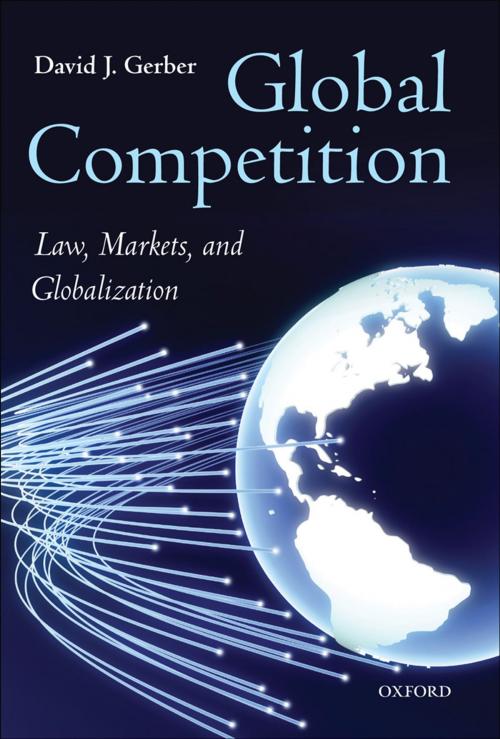Global Competition
Law, Markets, and Globalization
Nonfiction, Reference & Language, Law, Social & Cultural Studies, Political Science, Business & Finance| Author: | David Gerber | ISBN: | 9780191633621 |
| Publisher: | OUP Oxford | Publication: | January 26, 2012 |
| Imprint: | OUP Oxford | Language: | English |
| Author: | David Gerber |
| ISBN: | 9780191633621 |
| Publisher: | OUP Oxford |
| Publication: | January 26, 2012 |
| Imprint: | OUP Oxford |
| Language: | English |
Global competition now shapes economies and societies in ways unimaginable only a few years ago, and competition (or 'antitrust') law is a key component of the legal framework for global competition. These laws are intended to protect competition from distortion and restraint, and on the national level they reflect the relationships between markets, their participants, and those affected by them. The current legal framework for the global economy is provided, however, by national laws and institutions. This means that those few governments that have sufficient 'power' to apply their laws to conduct outside their own territory provide the norms of global competition. This has long meant that the US (and, more recently, the EU) structure global competition, but China and other countries are increasingly using their economic and political leverage to apply their own competition laws to global markets. The result is increasing uncertainty, costs, and conflicts that burden global economic development. This book examines competition law on the global level and reveals its often complex and little-understood dynamics. It focuses on the interactions between national and international legal regimes that are central to these dynamics and a key to understanding them. Part I examines the evolution of the current global system, the factors that have shaped it, how it operates today, and recent efforts to alter that system-e.g., by including competition law in the WTO. Part II focuses on national competition law systems, revealing how national laws and experiences shape global competition law dynamics and how global factors, in turn, shape national laws and experiences. It examines the central roles of US and European law and experience, and it also pays close attention to countries such as China that are playing increasingly important roles in the global competition law arena. Part III analyzes current strategies for improving the legal framework for global competition and identifies the factors that may contribute to a system that more effectively supports global economic and political development. This analysis also suggests a pathway for moving toward that goal.
Global competition now shapes economies and societies in ways unimaginable only a few years ago, and competition (or 'antitrust') law is a key component of the legal framework for global competition. These laws are intended to protect competition from distortion and restraint, and on the national level they reflect the relationships between markets, their participants, and those affected by them. The current legal framework for the global economy is provided, however, by national laws and institutions. This means that those few governments that have sufficient 'power' to apply their laws to conduct outside their own territory provide the norms of global competition. This has long meant that the US (and, more recently, the EU) structure global competition, but China and other countries are increasingly using their economic and political leverage to apply their own competition laws to global markets. The result is increasing uncertainty, costs, and conflicts that burden global economic development. This book examines competition law on the global level and reveals its often complex and little-understood dynamics. It focuses on the interactions between national and international legal regimes that are central to these dynamics and a key to understanding them. Part I examines the evolution of the current global system, the factors that have shaped it, how it operates today, and recent efforts to alter that system-e.g., by including competition law in the WTO. Part II focuses on national competition law systems, revealing how national laws and experiences shape global competition law dynamics and how global factors, in turn, shape national laws and experiences. It examines the central roles of US and European law and experience, and it also pays close attention to countries such as China that are playing increasingly important roles in the global competition law arena. Part III analyzes current strategies for improving the legal framework for global competition and identifies the factors that may contribute to a system that more effectively supports global economic and political development. This analysis also suggests a pathway for moving toward that goal.















